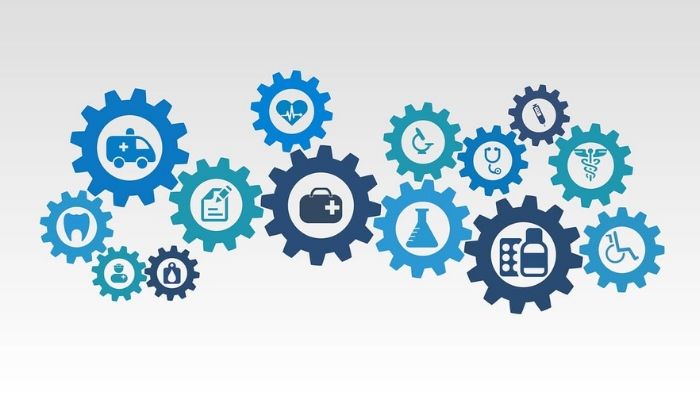Who should be taking care of my thyroid?
SEPTEMBER 4, 2015 by DR. HEATHER MODAY, MD
Who should be taking care of my thyroid? It’s a question we should all ask ourselves.
There is much talk about this butterfly shaped gland at the base of our neck, mostly about why things go awry and how this affects us in terms of symptoms. Thyroid disease affects over 20 million Americans, with autoimmune thyroid disease being one of the most common issues.
Autoimmune thyroid disease can be divided into Graves disease (hyperthyroid) and Hashimoto’s disease (hypothyroid). There are other forms of hypothyroid disease as well, such as post viral and post-partum thyroiditis.
Graves disease is less common – 1-2% incidence in the US – and causes more obvious symptoms such as tachycardia, protruding eyes, weight loss, sweating, and prominent goiter. Hashimoto’s (HT) however can present in many different ways, often very non specifically and the prevalence is thought to be much higher around 5-7 % of the population. For this post I am going to refer to Hashimoto’s (HT) exclusively.
Although there are screening guidelines in place, most organizations disagree on what they are, and many women and men never have their thyroid function checked, and when they do most practitioners will order a TSH (thyroid stimulating hormone) only.
One of the issues is that HT can present with fairly non-specific symptoms such as brain fog, depression, weight gain, constipation, dry skin, hair loss, cold intolerance, hoarse voice, irregular menstruation, infertility, and muscle pain. Most of the time ordering a TSH will lead to the diagnosis that one’s thyroid is “normal.”
And that is where the problem begins. You see, most practitioners including most endocrinologists- who are the specialists who are supposed to treat HT- actually don’t believe it can be treated. Endocrinologists are not versed in autoimmune disease, and they seem to ignore or forget the fact that HT as well as Graves is at heart an autoimmune phenomena. Because they actually don’t believe it can be halted, there is really no rush to diagnose the problem until the thyroid is not functioning and reflects in the TSH.
Since TSH is a pituitary hormone that regulates production of T3 and T4 – the main thyroid hormones, it will be normal until these hormones really start to fall. By this time, the thyroid gland may be under attack by anti- thyroid antibodies, often for many years. So the status quo in the Endocrine community is to watch and wait, and once the TSH becomes abnormal to simply replace with thyroxine (T4), a synthetic hormone. From the American Association of Clinical Endocrinologists (AACE) Medical Guidelines for Clinical Practice 2012
“The most reliable therapeutic endpoint for the treatment of primary hypothyroidism is the serum TSH value. Confirmatory total T4, free T4, and T3 levels do not have sufficient specificity to serve as therapeutic endpoints by themselves, nor do clinical criteria.”
So in other words, we really don’t care what your body is telling you, or how you feel, we are not budging unless that TSH is abnormal! Forget about the fact that there is an ongoing destruction of your thyroid gland, we really can’t help you until your poor thyroid is literally non-functional, and then we will give you a drug. It’s no wonder that Levothyroxine is the number #1 prescribed drug in the U.S. Yes, number #1.
And forget about measuring anti- Tpo antibodies or anti-thyroglobulin antibodies, which are the most commonly seen in Hashimoto’s disease. This is what the AACE thinks of this:
Measuring anti thyroid antibodies ” is only predictive in nature. If anti- thyroid antibodies are positive, hypothyroidism occurs at a rate of 4.3% per year versus 2.6% per year when anti- thyroid antibodies are negative. Therefore, the presence of positive TPOAb may or may not influence the decision to treat.”
Again, we don’t treat ongoing autoimmune disease.
OK, so if your endocrine doctor is not going to help you, then perhaps a doctor who takes care of autoimmune disease will? How about rheumatologists. After all, HT patients have a 14% likelihood of having at least one other additional autoimmune disease. Don’t rheumatologists treat autoimmune disease? Yes, if you consider treatment the use immune suppressive drugs such as steroids and scary biologic drugs. However, because the risks of these medications outweigh the benefits of treatment in the case of Hashimotos disease, thankfully this is not done. Basically when it comes down to it, most rheumatologists simply don’t believe that there is a way to reverse or at least halt autoimmune disease without using these suppressive drugs.
So if the endocrine specialists won’t look for the problem and the rheumatologists don’t believe in reversing autoimmune disease, what is one to do?
You have to take the situation into your own hands and be your own advocate. It is sad how often I see patients who have been walking around with elevated antibodies- clear markers of active autoimmune disease- and haven’t known because their doctors simply didn’t look. All the while dealing with on-going symptoms which may have been eliminated with some safe and easy interventions.
There has been an exponential explosion of compelling data looking at the underlying etiology of autoimmune disease and how lifestyle factors including toxins, infections, nutrition, stress all play into the development of disease. In upcoming posts, I will review some simple things to do on your own, what labs to request from your doctor, how to find a doctor to help you, as well as the ins and outs of different thyroid replacement.





